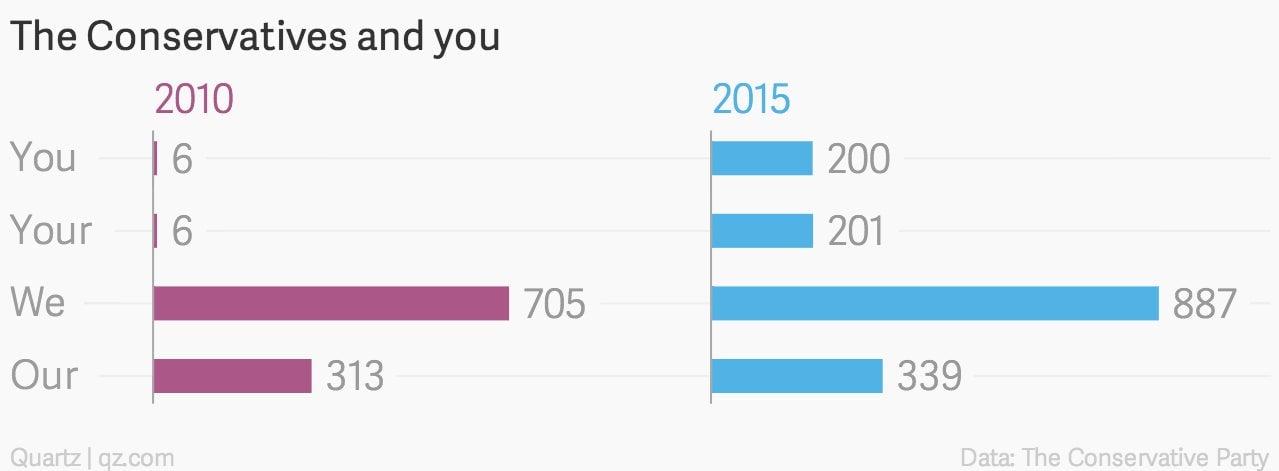The UK Conservative Party is obsessed with “you”
The Conservative Party wants to sit you down, stare unblinkingly into your eyes and tell you about itself—if the party’s manifesto, launched yesterday ahead of a general election on 7th May, is anything to go by.


The Conservative Party wants to sit you down, stare unblinkingly into your eyes and tell you about itself—if the party’s manifesto, launched yesterday ahead of a general election on 7th May, is anything to go by.
In a departure from the normal manifesto style, the Conservative Party’s 86-page plan directly addresses the voter, with liberal use of the second person. The word “you” appears 200 times, and “your” a further 201 times. (Some “yous” are within graphics, which means that my scan using Adobe Reader may have missed some.)
For comparison, the three previous Conservative general election manifestos used the second-person pronoun less than 30 times each. The Labour Party manifesto for 2015, released a day earlier and of about the same length, uses “you” just once and “your” 44 times.
Both the UK’s main parties use “we” a lot, but this year’s Conservative pledge trumps both its previous manifesto and Labour’s in 2010 and 2015, with 887 uses of the word.

The new tone is a gamble, likely meant to reassure Britons and to offer a sense of a shared Big Society (a phrase David Cameron coined in 2010, which has largely disappeared, but resurfaces now). Unfortunately, it smacks a little of Big Brother.
And the effect is, to be frank, creepy. Take the very first line, “We have a plan for every stage of your life,” which appears before a set of pledges that pretty well encompass the journey from cradle to grave.
“For your new-born baby, there will be the world’s best medical care,” Cameron’s foreword promises. “As you look for that first home, we will make sure the Government is there to help. As you raise your family, we will help you with childcare. And as you grow older, we will ensure that you have dignity in retirement.”
It’s a not-so-subtle enfolding of all readers into a shared present and a shared, rather intimate future in which the Conservatives continue to lead the UK government.
We’re all in this together, is the message. Whether you like it or not.